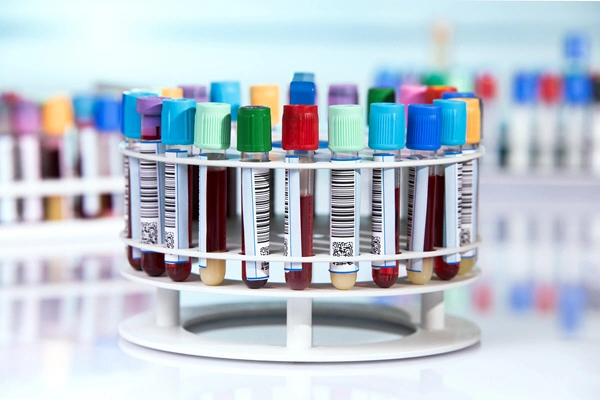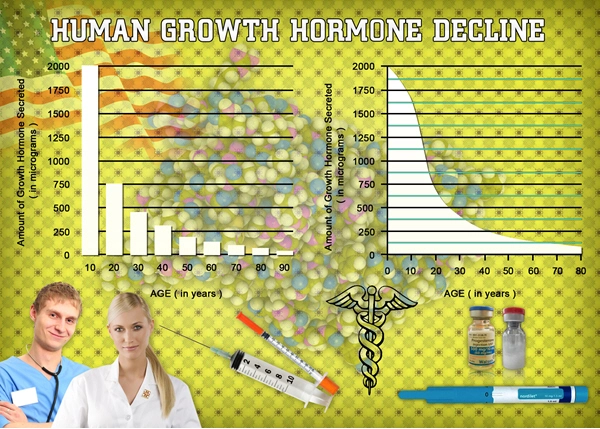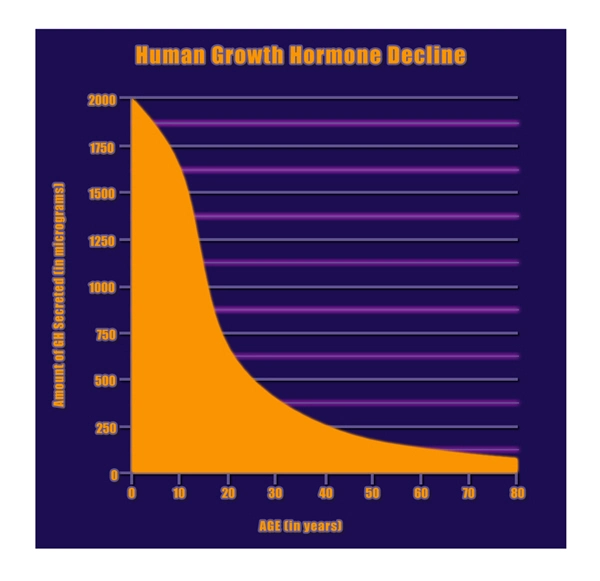Introduction to Hypopituitarism and Stroke
Hypopituitarism, a condition characterized by the diminished secretion of one or more of the eight hormones produced by the pituitary gland, can have far-reaching effects on the human body. Among the myriad complications associated with this disorder, an increased risk of stroke has emerged as a significant concern, particularly for American males. This article delves into the intricate relationship between hypopituitarism and stroke, emphasizing the critical role of hormonal monitoring in mitigating this risk.
Understanding Hypopituitarism
The pituitary gland, often referred to as the "master gland," plays a pivotal role in regulating various bodily functions through the hormones it produces. When this gland fails to produce sufficient quantities of these hormones, a condition known as hypopituitarism ensues. This can result from a variety of causes, including tumors, head injuries, radiation therapy, or autoimmune diseases. The symptoms of hypopituitarism can be subtle and varied, often leading to delayed diagnosis and treatment.
The Connection to Stroke
Recent research has shed light on the association between hypopituitarism and an increased risk of stroke, particularly ischemic stroke, which occurs when blood flow to the brain is blocked. The exact mechanisms underlying this link are not fully understood, but several theories have been proposed. One hypothesis suggests that the hormonal deficiencies associated with hypopituitarism, such as low levels of growth hormone and cortisol, may contribute to the development of atherosclerosis, a key risk factor for stroke. Additionally, hypopituitarism can lead to other conditions that increase stroke risk, such as hypertension and diabetes.
The Importance of Hormonal Monitoring
Given the potential link between hypopituitarism and stroke, regular hormonal monitoring becomes paramount for American males diagnosed with this condition. By closely tracking hormone levels, healthcare providers can identify deficiencies early and initiate appropriate hormone replacement therapy. This proactive approach not only helps alleviate the symptoms of hypopituitarism but also plays a crucial role in reducing the risk of stroke.
Hormone Replacement Therapy and Stroke Prevention
Hormone replacement therapy (HRT) is the cornerstone of treatment for hypopituitarism. By supplementing the deficient hormones, HRT can help restore normal bodily functions and potentially mitigate the risk of stroke. For instance, growth hormone replacement has been shown to improve cardiovascular risk factors, such as lipid profiles and body composition, which are closely linked to stroke risk. Similarly, cortisol replacement can help manage blood pressure and reduce the risk of hypertension, another significant stroke risk factor.
Lifestyle Modifications and Stroke Risk Reduction
In addition to HRT, American males with hypopituitarism should adopt lifestyle modifications to further reduce their stroke risk. This includes maintaining a healthy diet, engaging in regular physical activity, quitting smoking, and managing stress. These lifestyle changes, combined with regular hormonal monitoring and appropriate HRT, form a comprehensive approach to managing hypopituitarism and minimizing the risk of stroke.
The Role of Regular Medical Check-ups
Regular medical check-ups are essential for American males with hypopituitarism. These visits provide an opportunity for healthcare providers to assess hormone levels, adjust HRT as needed, and monitor for any signs of stroke or other complications. By staying vigilant and proactive, individuals can better manage their condition and reduce their risk of experiencing a potentially life-altering stroke.
Conclusion
The link between hypopituitarism and stroke underscores the importance of hormonal monitoring for American males diagnosed with this condition. By regularly assessing hormone levels and initiating appropriate HRT, healthcare providers can help mitigate the risk of stroke and improve overall health outcomes. Combined with lifestyle modifications and regular medical check-ups, this comprehensive approach offers hope for those living with hypopituitarism, empowering them to lead healthier, more fulfilling lives.

- Unraveling the Link Between Hypopituitarism and Metabolic Syndrome in American Males [Last Updated On: March 9th, 2025] [Originally Added On: March 9th, 2025]
- Hypopituitarism in American Men: Impacts and Management Strategies [Last Updated On: March 11th, 2025] [Originally Added On: March 11th, 2025]
- Unveiling the Cardiovascular Risks Associated with Hypopituitarism in American Males [Last Updated On: March 12th, 2025] [Originally Added On: March 12th, 2025]
- Unveiling the Cardiovascular Implications of Hypopituitarism in American Males [Last Updated On: March 16th, 2025] [Originally Added On: March 16th, 2025]
- Unraveling the Connection: Hypopituitarism and Uterine Fibroids in American Males [Last Updated On: March 16th, 2025] [Originally Added On: March 16th, 2025]
- Exploring Hypopituitarism's Impact on Vaginal Health and the Female Reproductive System [Last Updated On: March 16th, 2025] [Originally Added On: March 16th, 2025]
- Unraveling the Hormonal Link Between Hypopituitarism and Breast Cancer in American Males [Last Updated On: March 16th, 2025] [Originally Added On: March 16th, 2025]
- Hypopituitarism in American Males: Cognitive Impacts and Management Strategies [Last Updated On: March 17th, 2025] [Originally Added On: March 17th, 2025]
- Surgery for Hypopituitarism and Pituitary Tumors in American Males: Benefits and Risks [Last Updated On: March 18th, 2025] [Originally Added On: March 18th, 2025]
- Hypopituitarism's Impact on Skin Health in American Males: Symptoms, Diagnosis, and Management [Last Updated On: March 18th, 2025] [Originally Added On: March 18th, 2025]
- Hypopituitarism in American Males: Cancer Risks and Management Strategies [Last Updated On: March 19th, 2025] [Originally Added On: March 19th, 2025]
- Hypopituitarism in American Males: Managing Depression and Anxiety [Last Updated On: March 19th, 2025] [Originally Added On: March 19th, 2025]
- Hypopituitarism in American Men: Hormonal Imbalance and Sleep Disturbance Effects [Last Updated On: March 20th, 2025] [Originally Added On: March 20th, 2025]
- Hypopituitarism and Obesity in American Males: Diagnosis, Management, and Hormonal Links [Last Updated On: March 20th, 2025] [Originally Added On: March 20th, 2025]
- Hypopituitarism and Autoimmune Disorders: Implications for American Males [Last Updated On: March 20th, 2025] [Originally Added On: March 20th, 2025]
- Multidisciplinary Care Essential for Managing Hypopituitarism in American Males [Last Updated On: March 21st, 2025] [Originally Added On: March 21st, 2025]
- Hypopituitarism in American Males: Impact on Eye Health and Visual Impairments [Last Updated On: March 21st, 2025] [Originally Added On: March 21st, 2025]
- Hypopituitarism in American Males: Impact on Kidney Function and Management Strategies [Last Updated On: March 21st, 2025] [Originally Added On: March 21st, 2025]
- Hypopituitarism in Aging American Males: Symptoms, Impact, and Management Strategies [Last Updated On: March 21st, 2025] [Originally Added On: March 21st, 2025]
- Hypopituitarism and Allergies: Exploring Hormonal Impacts on Immune Response in American Males [Last Updated On: March 22nd, 2025] [Originally Added On: March 22nd, 2025]
- Hypopituitarism's Impact on Gastrointestinal Health in American Males [Last Updated On: March 22nd, 2025] [Originally Added On: March 22nd, 2025]
- Hypopituitarism and Anemia: Erythropoietin Deficiency's Role in American Males [Last Updated On: March 22nd, 2025] [Originally Added On: March 22nd, 2025]
- Hypopituitarism's Impact on Muscle Strength in American Males: Causes and Management [Last Updated On: March 23rd, 2025] [Originally Added On: March 23rd, 2025]
- Hypopituitarism and Hair Loss: Impacts and Treatments for American Males [Last Updated On: March 23rd, 2025] [Originally Added On: March 23rd, 2025]
- Hypopituitarism's Impact on Asthma in American Males: Hormonal Links and Management [Last Updated On: March 23rd, 2025] [Originally Added On: March 23rd, 2025]
- Hypopituitarism and Hearing Loss: Exploring the Link in American Males [Last Updated On: March 23rd, 2025] [Originally Added On: March 23rd, 2025]
- Exploring the Link Between Hypopituitarism and MS in American Males: Clinical Insights [Last Updated On: March 23rd, 2025] [Originally Added On: March 23rd, 2025]
- Hypopituitarism and Dyslipidemia: Hormonal Impacts on Lipid Profiles in American Males [Last Updated On: March 23rd, 2025] [Originally Added On: March 23rd, 2025]
- Hypopituitarism's Link to Alzheimer's in American Males: Hormonal Imbalances and Cognitive Decline [Last Updated On: March 24th, 2025] [Originally Added On: March 24th, 2025]
- Hypopituitarism and Migraines in American Males: Hormonal Fluctuations and Management Strategies [Last Updated On: March 24th, 2025] [Originally Added On: March 24th, 2025]
- Hypopituitarism and Hypertension: Impacts and Management in American Males [Last Updated On: March 24th, 2025] [Originally Added On: March 24th, 2025]
- Hypopituitarism in American Males: Hormonal Impact on Joint Health and Management Strategies [Last Updated On: March 24th, 2025] [Originally Added On: March 24th, 2025]
- Hypopituitarism's Impact on Liver Health in American Males: Mechanisms and Management [Last Updated On: March 24th, 2025] [Originally Added On: March 24th, 2025]
- Hypopituitarism's Impact on Osteoarthritis in American Males: A Comprehensive Overview [Last Updated On: March 24th, 2025] [Originally Added On: March 24th, 2025]
- Hypopituitarism's Impact on Immune Function in American Males: Diagnosis and Management [Last Updated On: March 24th, 2025] [Originally Added On: March 24th, 2025]
- Hypopituitarism's Impact on Pancreatitis: Risks and Management for American Males [Last Updated On: March 24th, 2025] [Originally Added On: March 24th, 2025]
- Hypopituitarism and Seizures in American Males: Neurological Links and Management [Last Updated On: March 24th, 2025] [Originally Added On: March 24th, 2025]
- Hypopituitarism and Diabetes: Impact on Glucose Metabolism in American Males [Last Updated On: March 25th, 2025] [Originally Added On: March 25th, 2025]
- Hypopituitarism and Chronic Fatigue Syndrome: Overlap and Impact on American Men [Last Updated On: March 25th, 2025] [Originally Added On: March 25th, 2025]
- Hypopituitarism in American Males: Cardiovascular Risks and Management Strategies [Last Updated On: March 25th, 2025] [Originally Added On: March 25th, 2025]
- Autoimmune Link Between Hypopituitarism and RA: Implications for American Males [Last Updated On: March 25th, 2025] [Originally Added On: March 25th, 2025]
- Hypopituitarism and Fibromyalgia: Overlapping Symptoms and Management in American Males [Last Updated On: March 26th, 2025] [Originally Added On: March 26th, 2025]
- Hypopituitarism and Pituitary Cancer: Symptoms, Detection, and Management in American Males [Last Updated On: March 26th, 2025] [Originally Added On: March 26th, 2025]
- Hypopituitarism and Gallbladder Disease: Emerging Links and Implications for American Males [Last Updated On: March 26th, 2025] [Originally Added On: March 26th, 2025]
- Hypopituitarism and Breast Cancer in American Males: Hormonal Links and Clinical Insights [Last Updated On: March 26th, 2025] [Originally Added On: March 26th, 2025]
- Hypopituitarism and Sjögren's Syndrome: Effects on Exocrine Glands in American Males [Last Updated On: March 27th, 2025] [Originally Added On: March 27th, 2025]
- Hypopituitarism's Role in Parkinson's Disease Progression and Management [Last Updated On: March 27th, 2025] [Originally Added On: March 27th, 2025]
- Exploring Hypopituitarism and Lupus Connection in American Males: Clinical Insights [Last Updated On: March 27th, 2025] [Originally Added On: March 27th, 2025]
- Hypopituitarism in American Males: Impacts on Kidney Health and Management Strategies [Last Updated On: March 28th, 2025] [Originally Added On: March 28th, 2025]
- Hypopituitarism and Gout: Uric Acid Link in American Males [Last Updated On: March 28th, 2025] [Originally Added On: March 28th, 2025]
- Autoimmune Links Between Hypopituitarism and Celiac Disease in American Males [Last Updated On: March 28th, 2025] [Originally Added On: March 28th, 2025]
- Hypopituitarism and Liver Cirrhosis: Impact on Hepatic Function in American Males [Last Updated On: March 29th, 2025] [Originally Added On: March 29th, 2025]
- Hypopituitarism and IBD Link in American Males: Gastrointestinal and Hormonal Interplay [Last Updated On: March 29th, 2025] [Originally Added On: March 29th, 2025]
- Hypopituitarism and Adrenal Cancer: Endocrine System Interplay and Management in American Males [Last Updated On: March 29th, 2025] [Originally Added On: March 29th, 2025]
- Hypopituitarism and Ovarian Cancer: Exploring Gynecological Links in American Males [Last Updated On: March 30th, 2025] [Originally Added On: March 30th, 2025]
- Hypopituitarism's Impact on Thyroid Cancer Risk in American Males [Last Updated On: March 30th, 2025] [Originally Added On: March 30th, 2025]
- Hypopituitarism's Impact on Prostate Cancer Risk and Management in American Males [Last Updated On: March 31st, 2025] [Originally Added On: March 31st, 2025]
- Hypopituitarism and Testicular Cancer: Impacts on Male Fertility and Preservation Strategies [Last Updated On: March 31st, 2025] [Originally Added On: March 31st, 2025]
- Hormonal Links Between Hypopituitarism and Endometriosis in American Males Explored [Last Updated On: April 1st, 2025] [Originally Added On: April 1st, 2025]
- Hypopituitarism and Uterine Fibroids: Exploring Gynecological Links in American Males [Last Updated On: April 1st, 2025] [Originally Added On: April 1st, 2025]
- Hypopituitarism and PCOS: Impacts, Diagnosis, and Management in Women's Health [Last Updated On: April 2nd, 2025] [Originally Added On: April 2nd, 2025]
- Hypopituitarism's Impact on Penile Health in American Males: Diagnosis and Management [Last Updated On: April 6th, 2025] [Originally Added On: April 6th, 2025]
- Hypopituitarism's Impact on Male Vaginal Health: Hormonal Imbalances and Comprehensive Care [Last Updated On: April 7th, 2025] [Originally Added On: April 7th, 2025]
- Hypopituitarism and Premature Ejaculation: Exploring Links and Treatment in American Males [Last Updated On: April 8th, 2025] [Originally Added On: April 8th, 2025]
- Hypopituitarism's Impact on Male Fertility: Diagnosis, Management, and Treatment for American Men [Last Updated On: April 10th, 2025] [Originally Added On: April 10th, 2025]
- Hypopituitarism and Cervical Cancer: The Crucial Role of Hormonal Monitoring [Last Updated On: April 10th, 2025] [Originally Added On: April 10th, 2025]
- Hypopituitarism and Erectile Dysfunction: Hormonal Links and Treatment Strategies [Last Updated On: April 10th, 2025] [Originally Added On: April 10th, 2025]
- Hypopituitarism and Preeclampsia: The Critical Need for Hormonal Monitoring in Pregnancy [Last Updated On: April 10th, 2025] [Originally Added On: April 10th, 2025]
- Hypopituitarism and Postpartum Depression: Impacts on Mental Health in American Males [Last Updated On: April 12th, 2025] [Originally Added On: April 12th, 2025]
- Hypopituitarism in American Males: Hormonal Impacts on Fertility and Miscarriage Risk [Last Updated On: April 12th, 2025] [Originally Added On: April 12th, 2025]
- Exploring the Metabolic Link Between Hypopituitarism and Gestational Diabetes in American Males [Last Updated On: April 13th, 2025] [Originally Added On: April 13th, 2025]
- Hypopituitarism and Ectopic Pregnancy: Impacts on Women and Role of American Males [Last Updated On: April 13th, 2025] [Originally Added On: April 13th, 2025]
- Hypopituitarism and Acne in American Males: Hormonal Links and Management Strategies [Last Updated On: April 15th, 2025] [Originally Added On: April 15th, 2025]
- Hypopituitarism's Impact on Menopause: Diagnosis, Management, and Hormonal Balance [Last Updated On: April 15th, 2025] [Originally Added On: April 15th, 2025]
- Hypopituitarism's Impact on Lactation in American Males: Challenges and Management [Last Updated On: April 15th, 2025] [Originally Added On: April 15th, 2025]
- Hypopituitarism and Alopecia: Hormonal Imbalances and Hair Loss in American Males [Last Updated On: April 16th, 2025] [Originally Added On: April 16th, 2025]
- Hypopituitarism and Andropause: Impacts, Diagnosis, and Management in Aging Men [Last Updated On: April 18th, 2025] [Originally Added On: April 18th, 2025]
- Hypopituitarism and Vision Loss in American Males: Mechanisms, Symptoms, and Management [Last Updated On: April 18th, 2025] [Originally Added On: April 18th, 2025]
- Hormonal Link Between Hypopituitarism and Hirsutism in American Males: Impacts and Management [Last Updated On: April 18th, 2025] [Originally Added On: April 18th, 2025]
- Hypopituitarism and Vestibular Disorders: Exploring Hormonal Impacts on Balance in American Males [Last Updated On: April 19th, 2025] [Originally Added On: April 19th, 2025]



List of USA state clinics - click a flag below for blood testing clinics.
Word Count: 595



















































